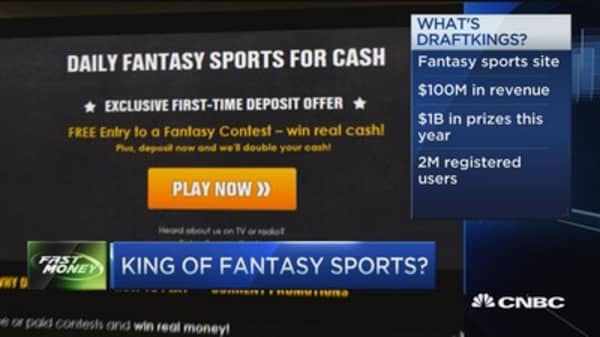Their commercials are everywhere: DraftKings and FanDuel have recently been huge spenders on American television, bigger than household names like Geico, Warner Bros., Ford, you name it.
The operators of daily fantasy sports sites have been arguing that their products are skill-based games, not gambling. But that hasn't quieted all the controversy — and recent government scrutiny. Fantasy sports are legal — for now — because the law has defined it as a skill game. If it gets treated as gambling, then immediately it's illegal in almost every state.
So what is it? A skill game? Gambling? Can it be both? One way of measuring this is to consider how well a random average participant would fare in daily fantasy, contrasted to the huge but largely illegal game of online poker.
Pro poker player Andy Frankenberger believes daily fantasy is much more like gambling than online poker.
"A daily fantasy pro's competitive edge over a beginner is nothing compared to the edge of a poker pro versus a first-time poker player. Your decisions in daily fantasy can't be that bad when players' prices are efficiently set by the sites," he said.
Frankenberger spent 14 years on Wall Street trading equity derivatives before becoming a two-time World Series of Poker champion and World Poker Tour player of the year. "It's similar to how there's no bad pick in sports betting if the lines are set efficiently," he said. "But in poker, players assign their own values to each hand, and as such, the skilled player stands to gain from making better decisions." In addition to poker, he's played fantasy sports since the 1980s, and daily fantasy for several years.
"It's a joke that between online poker and daily fantasy, poker is the one that's widely prohibited in this country," said Frankenberger. "Anyone who thinks poker is not a game of skill probably hasn't played much poker."








